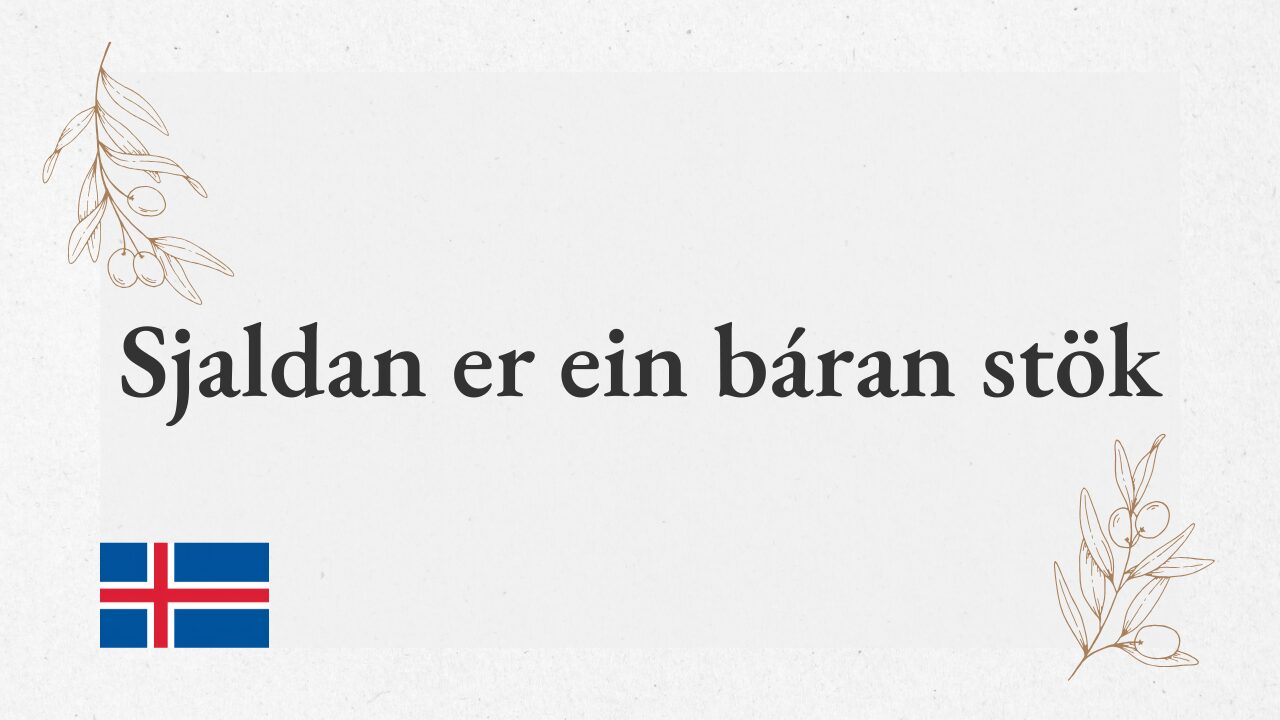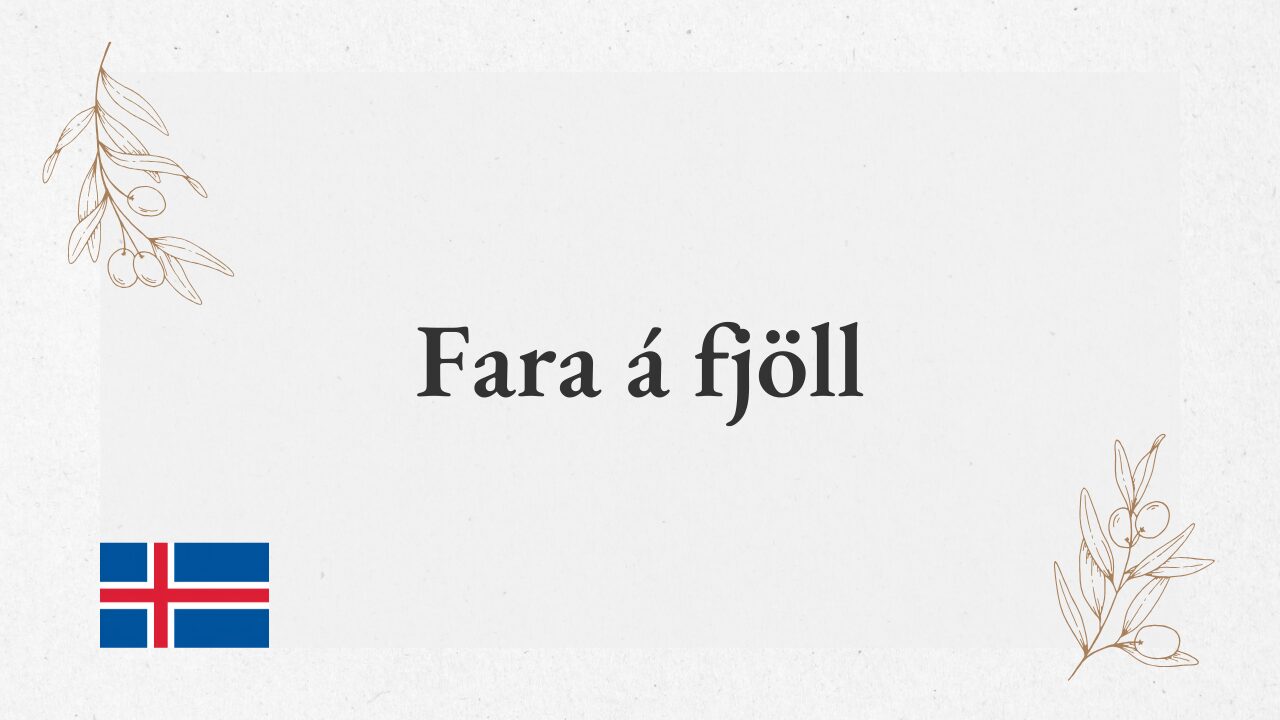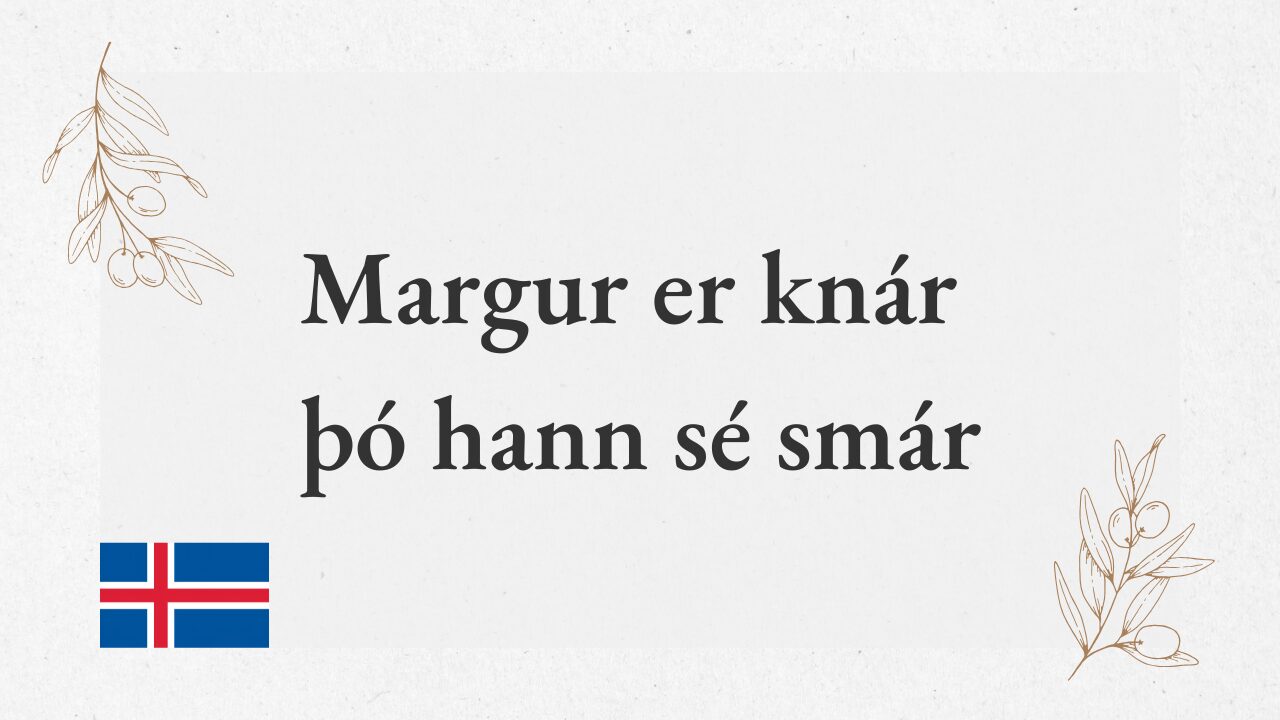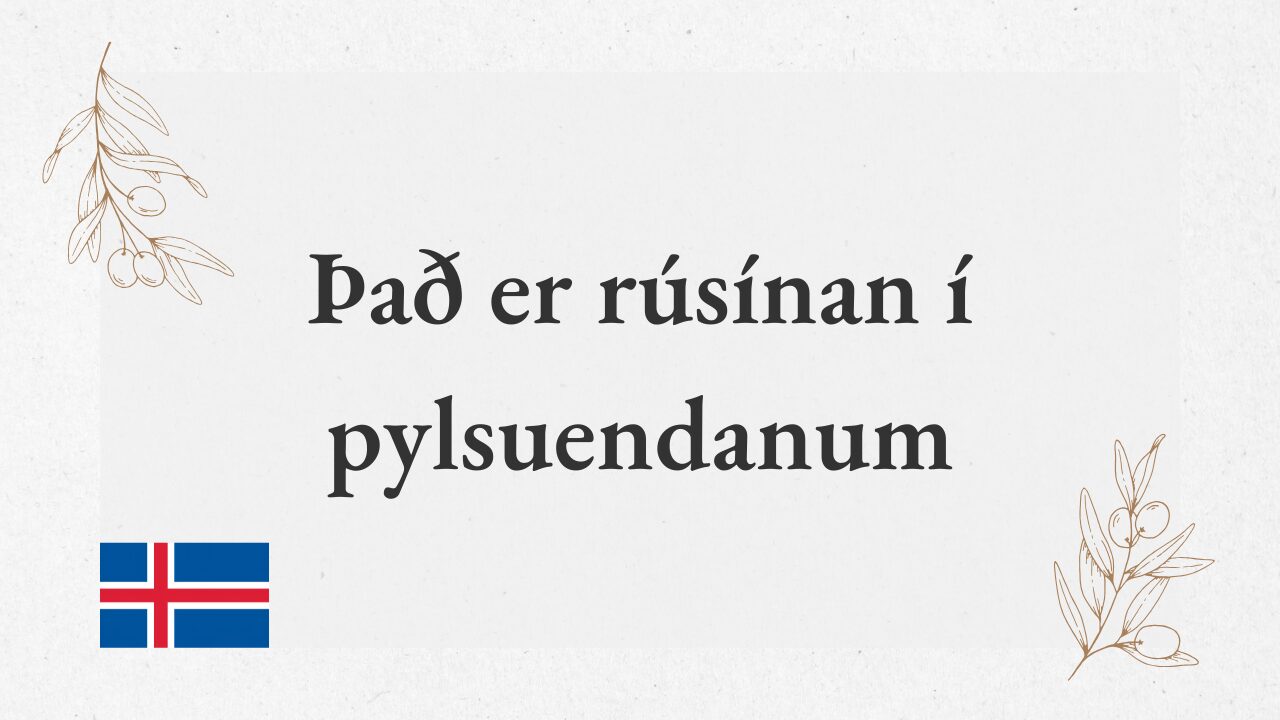“Sjaldan er ein báran stök” – A wave never comes alone

Meaning
The Icelandic phrase “Sjaldan er ein báran stök” (sjaldan er ein báran stök) means that difficulties or problems rarely come alone, but rather tend to occur one after another.
This expression refers to situations where unforeseen problems or misfortunes arise in succession. For example, when one problem arises, it often feels as if the next problem quickly follows, creating a chain reaction of troubles. It conveys the reality that problems often come in clusters.
It is similar to the Japanese phrase “泣きっ面に蜂” (literally, “a bee on a crying face”) or the English expression “When it rains, it pours.” Both emphasize the idea that when one problem arises, others are likely to follow, making the situation worse.
Origin
The origin of this proverb is deeply rooted in Iceland’s maritime culture.Iceland is a nation surrounded by the sea, and for centuries, fishing has been one of its primary industries. Icelandic fishermen lived their lives in constant interaction with nature, and life at sea was always challenging.
Waves often come in series, one after another, in the open sea, and this natural phenomenon is commonly observed by sailors. This imagery was applied metaphorically to human life, suggesting that once a problem arises, it doesn’t end there, but is often followed by additional issues.
This proverb’s lesson is based on the reality that difficulties frequently come in succession, just like waves at sea.
Usage
This proverb is used in everyday life when people face multiple problems at once or when difficulties occur in rapid succession.
For example, situations like a car breaking down, house repairs, and work-related issues happening simultaneously are prime examples of when this phrase is used. It conveys the importance of staying calm and composed when faced with a series of unexpected challenges.
Conclusion
“Sjaldan er ein báran stök” is an Icelandic proverb meaning “A wave never comes alone,” referring to the idea that difficulties or problems often come in multiples.
The expression is deeply rooted in Icelandic maritime culture, using the natural phenomenon of waves continuously crashing one after another as a metaphor to highlight the reality that problems rarely come in isolation.




